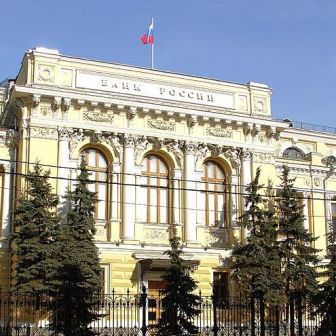(Eurasia Daily Monitor) Last week marked the anniversary of the shocking performance staged by the Pussy Riot punk rock group in the Christ the Savior Cathedral in Moscow. And this year saw a spectacular increase in the density of “patriotic” political noise silencing common sense in debates over such matters as separation of church and state, homosexual “propaganda” or the adoption of Russian children by American families. This noise has obscured one truly sensational news item produced by the Chairman of the Central Bank Sergei Ignatiev who confirmed that Russia, which should have been—and needs to be—a net importer of capital, lost through capital flight $57 billion in 2012, including $35 billion in “dubious operations” (Vedomosti, February 20). There is nothing new about these figures, but Ignatiev asserted that more than a half of the dubious money outflow is controlled by “one well-organized group of people,” which should have been identified and terminated.
This informed estimate provides a rare insight into the maturity of organized crime in Russia and the scope of the country’s corruption. This criminal group necessarily includes not only dirty bankers, who create disposable companies, but also tax authorities, who write down the non-payments, and even the Federal Security Service (FSB), which monitors financial flows (Novaya Gazeta, February 21). The organized crime group in question has built a reputation for reliably servicing the vast “shadow economy” and is well-protected against criminal investigations, so Ignatiev dares to spell out his frustration only because he is due to leave the position he has held for 12 years in a few months (Kommersant-FM, February 20). This invincibility of a flourishing criminal organization sheds new light on the plight of Sergei Magnitsky, who discovered a fragment of its activity and paid with his life for the attempt to stop it (Ezhednevny Zhurnal, February 23). In fact, the hysterical political reaction to every examination of the Magnitsky case in the United States or, more hesitantly, in the European Union can be largely explained by the inability to investigate this crime determined by the unbreakable chain of mutual commitments inside the group of money-exporters (Novaya Gazeta, February 20).
President Vladimir Putin is probably irked and alarmed by the absolute indifference within the corrupt bureaucracy to his supreme orders, and he also begins to suspect that the non-stop parade of raspil and otkat (these expressive terms for embezzlement and bribe have enriched the financial lexicon) threatens the sustainability of Putinism’s economic model. He tries to strike some fear back into the predatory bureaucracy by expressing outrage over the most blatant “privatization” of budgets designated for top-priority projects in Vladivostok, which hosted the Asia-Pacific Economic Cooperation (APEC) summit, and in Sochi, where the Olympic construction has entered its final desperate phase (New Times, February 18). His search for scapegoats remains, however, as unconvincing as […]
Read the full article | © Eurasia Daily Monitor Volume (10: 35)









